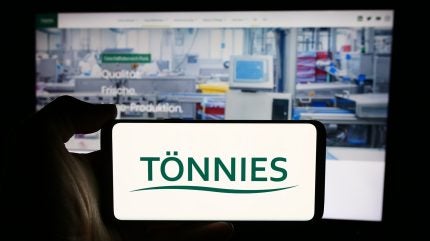
Germany’s competition authority has blocked the acquisition by local meat processor Tönnies of a number of plant assets in the country owned by Netherlands-based peer Vion.
Of particular concern are the Vion slaughterhouses in Buchloe, Crailsheim and Waldkraiburg, the Bundeskartellamt said in a statement yesterday (12 June).

Discover B2B Marketing That Performs
Combine business intelligence and editorial excellence to reach engaged professionals across 36 leading media platforms.
Andreas Mundt, the president of the Bundeskartellamt anti-trust body said: “The takeover of Vion’s facilities raised competition concerns as it would have strengthened Tönnies’ market position to the detriment of the farmers and smaller competitors remaining in the regions affected. In addition to its already dominant position in the pig slaughtering and processing industry in Germany, Tönnies would also have gained a leading position in the slaughter and processing of cattle.
“The takeover would reduce options for producers and customers to switch to alternative companies, thus expanding the Tönnies Group’s market position and scope of action. It would also have brought disadvantages to buyers of slaughter products throughout Germany.”
Vion began a round of meat-asset closures in Germany in 2023 and later announced a plan to exit the market completely. It formed an agreement in January last year with Tönnies for two of its plants followed by more in September of that year.
The planned disposals included slaughterhouses in Buchloe, Crailsheim, and Waldkraiburg, along with a deboning facility in Hilden, and two hide-processing plants in Memmingen and Eching-Weixerau.

US Tariffs are shifting - will you react or anticipate?
Don’t let policy changes catch you off guard. Stay proactive with real-time data and expert analysis.
By GlobalDataIn reaction to the Bundeskartellamt, a Tönnies spokesperson said in a statement sent to Just Food: “We are deeply disappointed by this decision.”
The company added it is “reviewing” the authority’s reasoning and “will then decide on possible legal remedies”.
Providing further details on its decision, the Bundeskartellamt said it had asked for feedback from competitors and meat customers in Germany, and had “reached the conclusion that the merger would result in the creation or strengthening of a dominant position for Tönnies in several regional slaughter markets in southern and eastern Germany”.
It added that Vion was the “market leader” in cattle slaughtering in southern Germany. Post-acquisition, Tönnies would hold over 40% market share in the Buchloe, Waldkraiburg and Kempten catchment areas, “far exceeding” smaller competitors.
The merger would also strengthen Tönnies’ dominance in pig slaughtering in the Weißenfels area by adding Crailsheim, whose catchment area overlaps, the regulator added.
In March, Bundeskartellamt said it sent a statement of objections to Tönnies and Vion outlining the competition concerns. Then in April, the companies proposed divestment and leasing of facilities to designated acquirers to address concerns, the regulator added.
However, it rejected those commitments as “not capable” of preventing Tönnies’ dominance.
The decision announced yesterday is not final and can be appealed to the Düsseldorf Higher Regional Court, Bundeskartellamt said.





